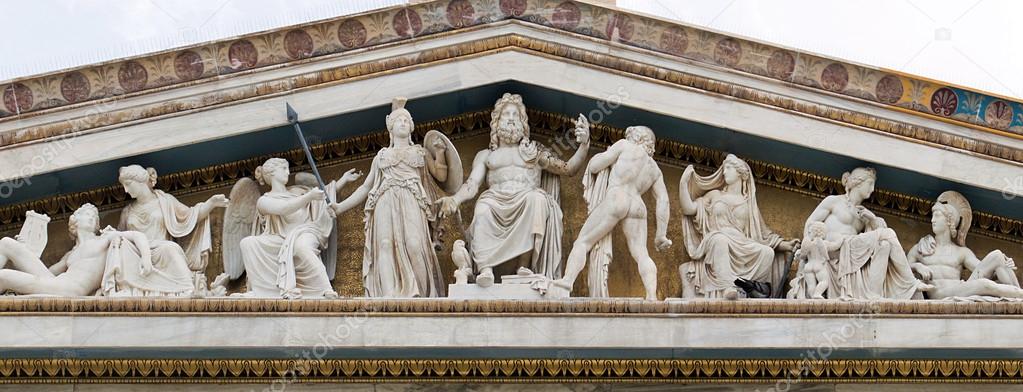The Apatouria was a paternity festival. The first day was celebrated with a communal feast within the brotherhood, the second day sacrifice were made to Zeus Phratrios and Athena Phratria, and the third day young boys admitted to their father's brotherhood. We don't have these kinships anymore and we won't be celebrating all days of the festival because of it. What we do want to do is sacrifice to Zeus Phratrios and Athena Phratria in gratitude of the kinship we have found in Hellenismos and Elaion. Will you join us on the 4th of October at the usual 10 AM EDT?
The Apaturia (Ἀπατούρια) was an ancient Hellenic festival held annually by all the Ionian towns, except Ephesus and Colophon. In Athens, the Apatouria was the central element in the ritual calendar of the phratries, the kinship organizations crucial for determining Athenian citizenship. The three-day festival occurred in the autumn in the month Pyanepsion and was celebrated at the separate phratry shrines throughout Attica.
On the first day of the festival, called Dorpia or Dorpeia (Δορπεία), banquets were held towards evening at the meeting-place of the phratries or in the private houses of members.
On the second, Anarrhysis (from ἀναρρύειν, 'to draw back the victim's head'), a sacrifice of oxen was offered at the public cost to Zeus Phratrios and Athena Phratria.
On the third day, Kureōtis (κουρεῶτις), children born since the last festival were presented by their fathers or guardians to the assembled phratores, and, after an oath had been taken as to their legitimacy and the sacrifice of a goat or a sheep, their names were inscribed in the register. The name κουρεῶτις is derived either from κοῦρος, 'young man', i.e., the day of the young, or less probably from κείρω, 'to shear', because on this occasion young people cut their hair and offered it to the gods. The children who entered puberty also made offerings of wine to Herakles. On this day also it was the custom for boys still at school to declaim pieces of poetry, and to receive prizes.
Ancient scholarship links the Apatouria to the myth of the ritual combat between the Athenian Melanthos (the 'dark one') and the Boiotian Xanthos (the 'fair one') for the kingship of Attica, which Melanthos won through a trick (apate). Although some modern scholars have therefore seen a connection to the ephebes and to rites of passage involving social inversion, the rituals of the festival have no apparent connection to the narrative of the myth, and most modern scholars now link the Apatouria to the control, maintenance, and affirmation of kinship and of membership in society at every level.
-
Saturday, October 3, 2020
ancient Hellenic culture Apatouria Athena Athena Phratria current events Elaion festivals PAT Zeus Zeus Phratrios


No comments:
Post a Comment